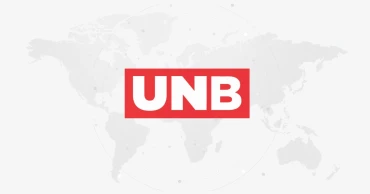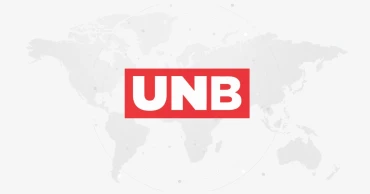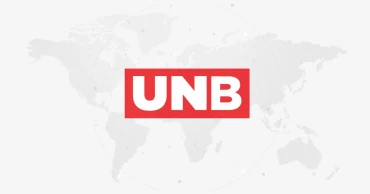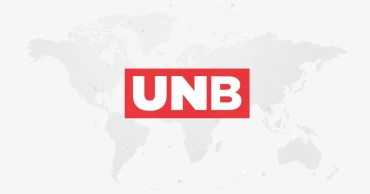Finance
World Bank agrees to finance for development of metro rail-centric communication
The World Bank has agreed to provide fund for developing the metro rail-centric communication system, constructing walkways beside canals and procurement of electronic buses.
It will provide support under the Integrated Corridors Management (ICM) project to turn every metro rail station from Mirpur-12 to Banglamotor integrated communication center, said a press release.
Dhaka North City Corporation(DNCC) Mayor Md. Atiqul Islam discussed the matter with the Vice President for Infrastructure at the World Bank Guangzhe Chen at World Bank headquarters on Monday, said an official release.
Chief Engineer of DNCC Brigadier General Mohammad Amirul Islam, also a member of the delegation, said, "Though the roads under metro rail have been developed, there is no good system for coming and going through the connecting roads from the metro rail stations. But, metro stations in developed countries have integrated corridor management for the movement of passengers.”
“The World Bank has agreed to provide financial support for this project. If everything goes well, the issue of financial cooperation is expected to be approved by the World Bank's board next November,” Amirul Islam said.
The Bank is interested to provide about 150 million US dollars, he added.
A team led by Mayor Md. Atiqul Islam went to Washington DC on the occasion of the World Bank's 20th Conference on Transforming Transportation-2023 in Washington DC, USA.
2 years ago
ICCB workshop focuses on innovations in trade finance
In the context of the ongoing global financial and economic crisis, banks and businesses need to take stringent measures to ensure that their sales transactions are watertight.
Open account and International factoring are being adopted by most countries around the world for better and smoother trade finance.
Factoring in South Asia as a region in general and Bangladesh, in particular, has still been very limited, whereas factoring in most other regions of the world has exploded with the shift towards open account trade, said ICC Bangladesh Vice President A. K. Azad at the Certificate Award Ceremony of ICC Bangladesh Workshop on Factoring & Open Account for International Trade Finance.
Bangladesh has made a strong economic recovery from the COVID-19 pandemic. The export income is increasing and is successfully advancing overcoming all hurdles. During FY22, the RMG export was $42.62 billion, which is about 82 per cent of the total export of $52.08 billion. The Country is poised to overtake China in garments export to the EU. Bangladesh’s share in the global RMG market is only 6.50% as against China’s 32.21%, he added.
Azad mentioned that BGMEA is targeting to export US$100 billion worth of garment items by 2030. Besides, there is immense potential for Bangladesh to increase its export of leather goods, pharmaceuticals, plastic products and other products.
Azad observed that Bangladesh Bank’s circular on ‘conditional open account transactions’ is a good initiative. It is now more than two years that open account transactions have been allowed by Bangladesh. We would suggest undertaking studies on the impact of this decision as well as considering the possibility of allowing conditional open account for import as well. ICC Bangladesh can work together with Bangladesh Bank in this regard, he said,
“Bangladesh Government is promoting digitization to make Smart Bangladesh. Therefore, we would suggest appropriate policy changes should be made by Bangladesh Bank to digitize international trade. We from ICC Bangladesh will be delighted to support Bangladesh Bank in implementing DSI developed by ICC HQ.” Azad said.
Ahmed Jamal, Deputy Governor of Bangladesh Bank in his keynote speech mentioned that Bangladesh Bank after huge exercises brought radical changes in foreign trade transactions by the issuance of FE Circular No. 25 on June 30, 2020. Bangladesh Bank is always committed to providing policy support to our exporters and importers. Given the ongoing situation due to the Covid-19 pandemic, Bangladesh Bank extended policy supports to international trade by ways of (a) extending repatriation of export proceeds, (b) extension of usance periods of import payments including back-to-back LCs, (c) EDF loan repayment extended to 360 days, (d) refinancing from EDF for normal back to back LCs and so on, Deputy Governor added.
He observed even during the pandemic situation we are being visited by several international financing institutes. This indicates that we are growing despite different odds. I am sure external financiers will benefit from trade transactions in Bangladesh. He requested the exporters to use the policy to protect their payments.
Dr Md. Akhtaruzzaman, Director General, Bangladesh Institute of Bank Management (BIBM) & Peter Mourly, Secretary General, Factor Chain International, The Netherlands addressed the inaugural session and ICC Bangladesh Secretary General Ataur Rahman delivered the welcome address.
In the workshop, a panel discussion was held. The panel discussion was moderated by Muhammad A. (Rumee) Ali and the keynote speaker was Ahmed Jamal, Deputy Governor of Bangladesh Bank.
The panelists were: Md Fazlul Hoque, Managing Director, Plummy Fashions Ltd.; Mohammad Hatem, Executive President, BKMEA & Managing Director, MB Knit Fashion Ltd.; Muhammad Mohsin Reza, General Manager, Supply Chain of SKF Pharmaceuticals Limited; Naser Ezaz Bijoy, President, Foreign Investors’ Chamber of Commerce & Industry (FICCI) and Chief Executive Officer, Standard Chartered Bank; Ahmed Shaheen, Additional Managing Director, Eastern Bank Limited; Peter Mulroy, Secretary General, Factor Chain International (FCI) and Dr Prashanta Kumar Banerjee, Professor, Bangladesh Institute of Bank Management (BIBM).
A total of 131 participants including officials of the Ministry of Commerce and Bangladesh Bank, 96 participants from 31 banks and 32 participants from 24 companies attended the day-long workshop.
Read more: Accelerate gas exploration to overcome energy crisis: ICCB
3 years ago
CSOs demand Bangladesh put loss, damage finance on COP27 agenda
Civil society organisations (CSOs) Thursday urged the government to ensure that loss and damage finance is on the formal agenda of the 2022 UN Climate Change Conference (COP27) in Egypt.
As one of the countries most vulnerable to climate change, Bangladesh also should strongly support the legally binding commitment to a "zero emission" target followed by a "maximum 1.5 degrees Celsius temperature" goal.
The civil society leaders made the demand at the seminar "COP-27: Government Position and Civil Societies Opinion" in Dhaka Thursday.
The seminar was jointly organised by COAST foundation, An Organization for Socio-Economic Development (AOSED), Centre for Participatory Research and Development (CPRD) Coastal Development Partnership (CDP), Centre for Sustainable Rural Livelihood (CSRL), Equity and Justice Working Group, and Bangladesh (EquityBD).
Loss and damage mainly refers to the impacts of climate change that cannot be (or have not been) avoided through mitigation or adaptation. In addition to economic losses and damages to households, communities, infrastructure, and industries like agriculture, forestry, fisheries, and tourism, it also encompasses noneconomic losses to lives, cultures, and territories.
Read: Civil society needs 'space, enabling conditions': Bachelet
Syed Aminul Hoque of EquityBD said COP27 is crucial as the developed countries are trying to breach all of their previous commitments and tend to bypass the basic principles of the Paris Agreement.
"They have put forward new concepts like net zero emission, New Collective and Quantified Goal on Finance. These vague or elusive concepts proposed by the developed countries are deeply inequitable and do not commensurate with meaningful reductions of global warming to 1.5 degrees Celsius under the Paris Agreement," he added.
Sharif Jamil, general secretary of Bangladesh Paribesh Andolon (Bapa), suggested the government take a clear stance against net zero compliance in COP27 as Bangladesh has no commitment to this concept except zero emission by 2050.
Ziaul Hoque Mukta of CSRL demanded a separate regime for climate-induced displacement under the United Nations Framework Convention on Climate Change in COP negotiation, he said.
3 years ago
G20 finance leaders in Bali to tackle Ukraine, inflation
Top financial officials from the Group of 20 leading rich and developing nations met on the Indonesian island of Bali on Friday seeking strategies to counter inflation, food insecurity and other troubles that have worsened due to the war in Ukraine.
Indonesian Finance Minister Sri Mulyani Indrawati opened the two-day meeting by urging fellow finance ministers, central bank chiefs and other leaders to find ways to “build bridges, not walls.” The consequences of failure, especially for less wealthy nations, would be “catastrophic,” she said. “Millions and millions if not billions of people are depending on us."
In their closed door meetings, the financial leaders are searching for ways to coordinate how they shepherd their economies through inflation that is running at 40-year highs, unsnarling supply chains and bottlenecks due to the coronavirus pandemic and fortifying financial systems against future risks.
U.S. Treasury Secretary Janet Yellen called for the G-20 to take action to fight food insecurity as millions go hungry due to soaring costs for food and other necessities. It is crucial, she said, to avoid stockpiling and export bans, to provide financial help to the needy and to ensure all organizations, such as development banks and food agencies, do their part to alleviate hunger.
“The speed and wisdom of our decisions now will make the difference on whether we get the current crisis under control," Yellen said. “The G-20 must work together to tackle these challenges and protect vulnerable families from the threat of hunger today and tomorrow."
Indonesia is among the developing countries contending with shortages and rising prices of fuel and grain due to the war and it says the G-20 has a responsibility to step up and ensure the rules-based global order remains relevant.
Read: G20 make commitments on climate neutrality, coal financing
This week's meetings in Bali's heavily guarded Nusa Dua resort town follow a gathering there of foreign ministers earlier this month that failed to find common ground over Russia’s war in Ukraine and its global impacts.
At that meeting, U.S. Secretary of State Antony Blinken and Russian Foreign Minister Sergey Lavrov were present in the same room at the same time for the first time since the Ukraine war began but they pointedly ignored each other.
A G-20 finance meeting in Washington, D.C. in April saw officials from the U.S., Britain, France, Canada and Ukraine walk out to protest the attendance of Russian envoys. That meeting ended without the release of a joint statement.
Caught in the middle as host, Indonesia has urged officials from all sides to overcome mistrust for the sake of a planet confronting multiple challenges from the coronavirus to climate change to Ukraine.
G-20 financial meetings have the advantage of being less political in nature, Indrawati said. She said Indonesia, as host, has tried to act as an “honest broker," uniting a divided East and West, but there's no “playbook" for how to find agreement given the unprecedented tensions over the war.
Still, the G-20 managed to bridge differences in coping with the 2008 global financial crisis and the pandemic, Indrawati said.
Also read: G20 leaders to tackle energy prices, other economic woes
One key goal for Yellen and some other Western financial officials is gaining support for setting a price cap on Russian oil that might help bring energy costs under control and alleviate the decades-high inflation seen in many countries while also limiting Moscow's access to revenues to fund its war effort.
Yellen said Thursday that no price had yet been determined for such a cap, but the level would have to be one “that clearly gives Russia an incentive to continue to produce, that would make production profitable for Russia.”
Without a price cap, a European Union and probably a U.S. ban on providing insurance and other financial services would take effect.
Yellen said she was “hopeful” that countries such as China and India that recently boosted imports of Russian crude oil, sold at steep discounts, would see it as being in their own self-interest to observe the price cap.
3 years ago
Finance Minister condoles Muhith's demise
Finance Minister AHM Mustafa Kamal has expressed deep shock at the demise of veteran economist and politician AMA Muhith.
Kamal, in his condolence message, prayed for the eternal salvation of the departed soul and conveyed his deepest condolences to the bereaved family, the Ministry said in a release on Saturday.
READ: Govt yet to take any decision on subsidy or inflation management: Finance Minister
Kamal said that Muhith was awarded the Independence Medal and "he was one of our guardians".
He was simultaneously a renowned economist, politician, writer and linguist. He had worked as an expert in various global organisations like the World Bank.
"In his death, the nation lost a true patriot. The nation will remember with gratitude his contribution to the economic development of Bangladesh," the Finance Minister said.
3 years ago
Nagad, Dana enable access to finance for unserved
Mobile financial service provider Nagad and Dana Fintech, an embedded finance and credit scoring platform, have announced a partnership to expand digital lending to Small and medium-sized enterprises (SMEs) and financial wellness platform for underserved consumers.
Under this partnership, both organizations will enable partner lenders to extend SME digital lending facility which will potentially enhance Nagad’s payment ecosystem and Dana’s embedded lending technology.
READ: DU student's Unmukto Library gets books from Nagad
Rahel Ahmed, chief executive officer (CEO) of Nagad Ltd, and Gazi Yar Mohammad, co-founder and CEO of Dana Fintech, signed the agreement during a ceremony recently arranged at the Nagad headquarter in the Capital.
Regarding the agreement, Nagad CEO Rahel Ahmed said, this partnership is a milestone in making underserved SMEs and individuals credit worthy through Dana credit scoring engine based on different data insights and digital transaction footprints of Nagad users.
This will open up new opportunities for quick access to capital for SMEs and underserved customers who don’t have easy access to loans or credit cards, he added.
Through this partnership, entrepreneurs of micro and SME enterprise sectors in the country can readily obtain financial benefits from the lenders. There are several more facilities available to Nagad customers, particularly with SME Digital Loan, Buy Now Pay Letter (BNPL), and Earn Wage Proposition. In addition to increasing the payment ecosystem of Nagad Ltd, the service will also increase the integrated credit system of Dana Finance.
Shihab Uddin Chowdhury, Chief Sales Officer of Nagad Ltd, and Zia Hassan Siddique, Co-founder and COO of Dana Fintech were also present at the signing ceremony.
3 years ago
V20 Climate Finance Summit
Bangladesh will host the first-ever virtual V20 Climate Vulnerables Finance Summit on Thursday aimed at shaping up a cooperative responses of the problems related to global warming and climate change.
Prime Minister Sheikh Hasina, Chair of the Climate Vulnerable Forum (CVF), will open the Summit, which will be attended by the Heads of States and Governments from the CVF member countries, said Finance Minister AHM Mustafa Kamal told reporters at a virtual briefing on Wednesday.
He said major International Financial Institutions, including the Secretary General of the United Nations and representatives from G7 and G20 will to attend the mega event scheduled to be held from 7:30 pm to 9:50 pm.
READ: PM to open V20 Finance Summit Thursday
He said the event is poised to become one of the most crucial and eminent platforms for decisive climate action in the lead up to COP26 Glasgow.
The CVF member nations include Colombia, Costa Rica, Ethiopia, and the Marshall Islands; V20 finance ministers from countries including Afghanistan, Bangladesh, Bhutan, Burkina Faso, Costa Rica, Dominican Republic, Ghana, Haiti, Ethiopia, Fiji, Grenada, Honduras, Maldives, Marshall Islands, Philippines, Timor-Leste, and Sri Lanka; along with Minister of Foreign Affairs and Minister of Environment, Forestry and Climate Change of Bangladesh.
Formed in 2015 the V20 Group of Finance Ministers, Mustafa Kamal said, this forum is a dedicated cooperation initiative of economies systematically vulnerable to climate change.
The finance minister said the V20 represents economies of a collective 1.2 billion people from 48 countries which are the most affected by the climate change and they are facing existential threats from its growing perils.
He said that collectively, V20 countries will seek a transformational approach to global economic activities anchored in keeping global warming to below 1.5 degree Celsius while keeping the global economy on its growth path.
“We are going to set a clear pathway overcoming the real crisis of Covid-19 and climate change towards a recovery and climate prosperity as a whole.
He said government and international agencies must seize every opportunity for protection of the most vulnerable communities through a close cooperation with the United Nations sand key development partners in order to ensure fast-tracked efforts in building resilience.
Responding to a question, Kamal said there is almost zero emissions in the coal-fired power plants which Bangladesh is building for its economic needs. “We use the highest quality coal in these plants”.
READ: Bangladesh to host V20 Climate Vulnerables Finance Summit on July 8
He also claimed that Bangladesh has been spending more than $2 billion every year to mitigate climate vulgarities.
Minister of Environment, Forest and Climate Change, Md. Shahab Uddin; Special Envoy of CVF Presidency of Bangladesh, Md. Abul Kalam Azad; Secretary of Economic Relations Division Fatima Yasmin and Secretary of the Ministry of Environment, Forest and Climate Change, Md. Mostafa Kamal, also spoke at the press briefing.
4 years ago
IPDC appoints Savrina Arifin as Head of Retail Business
IPDC Finance Limited has appointed Savrina Arifin as its Head of Retail Business.
She was previously serving as the Acting Head of Retail Business and Head of Distribution prior to that at IPDC.
Savrina Arifin has 15 years of extensive experience in the banking and financial sector.
Also read: IPDC Finance Ltd wins Intellectual Property Protection Award 2021
She started her career in the Priority Banking Division of Standard Chartered Bank in 2006 and later joined IPDC Finance Limited in 2008.
She completed her Master of Business Administration and Bachelor of Business Administration from North South University.
Speaking about the appointment, Mominul Islam, Managing Director and CEO, IPDC Finance, said, “Our expectations from retail finance have always been steep since we are dealing with ever-evolving customers and ever-shifting technology and we believe the best way to meet those expectations is to keep metamorphosing."
Read IPDC Finance Ltd wins Intellectual Property Protection Award 2021
He said he has full faith in Savrina’s grit and ambition to drive IPDC towards revolutionizing retail finance and want to congratulate her for her new role.
Her expertise includes retail business development, sales & marketing, strategic business planning, relationship management and risk management.
Her key achievements include significant expansion of IPDC’s distribution network through important contributions in shaping IPDC’s retail business landscape with her deep consumer insights, leading the transformation of the Retail business products and processes and enhancing the branch service experience by optimizing service delivery channels.
Read IPDC: Mominul Islam re-appointed MD, CEO for 4th time
4 years ago




.jpg)
.jpg)

.jpg)



